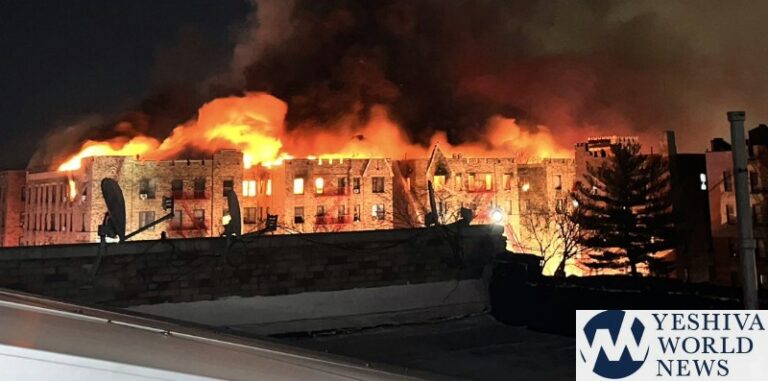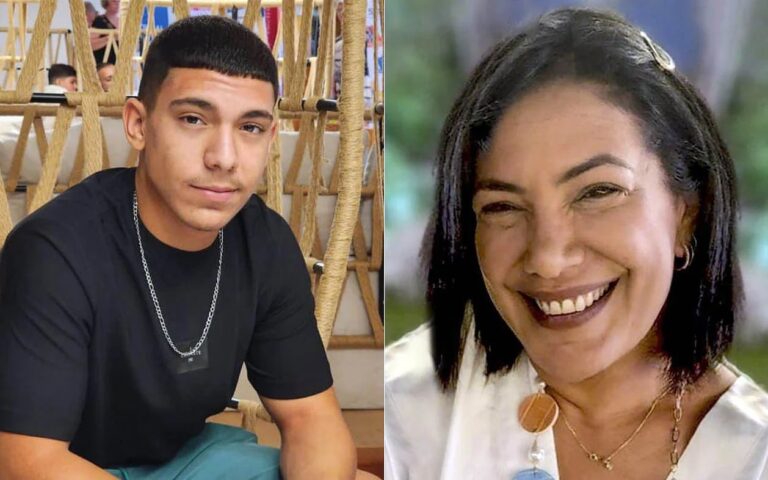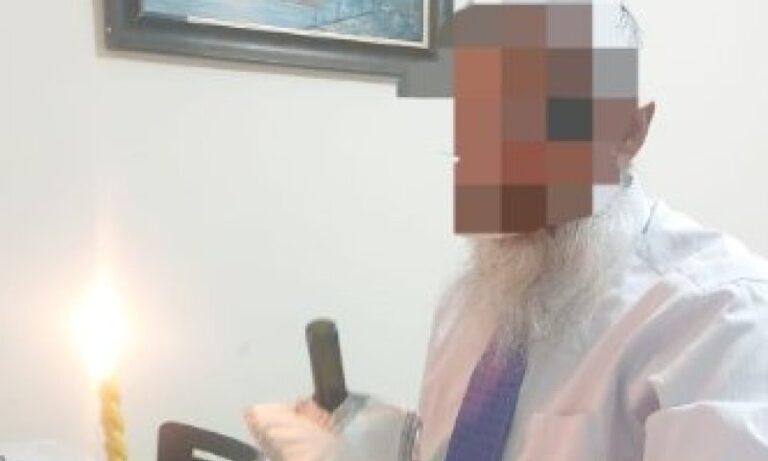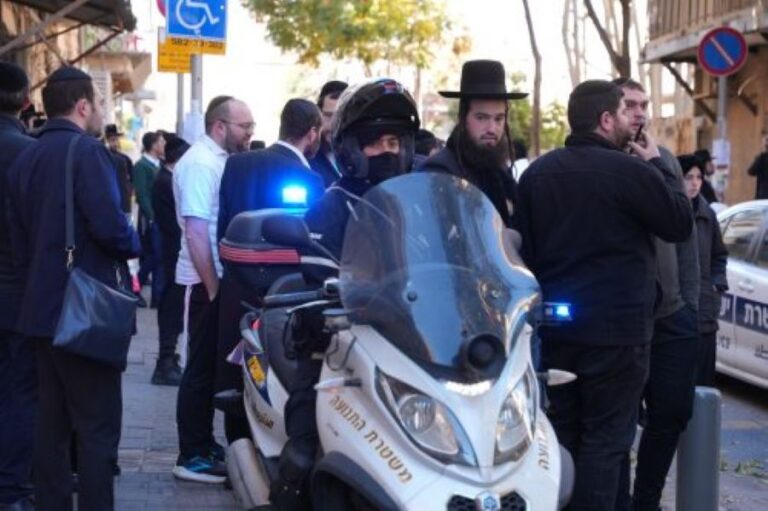 The following is meant as a convenient review of Halachos pertaining to Rosh Hashana. The Piskei Din for the most part are based purely on the Sugyos, Shulchan Aruch and Ramah, and the Mishna Berura, unless stated otherwise. They are based on my understanding of the aforementioned texts through the teachings of my Rebeim. As individual circumstances are often important in determining the psak in specific cases, and as there may be different approaches to some of the issues, one should always check with one’s Rov first.
The following is meant as a convenient review of Halachos pertaining to Rosh Hashana. The Piskei Din for the most part are based purely on the Sugyos, Shulchan Aruch and Ramah, and the Mishna Berura, unless stated otherwise. They are based on my understanding of the aforementioned texts through the teachings of my Rebeim. As individual circumstances are often important in determining the psak in specific cases, and as there may be different approaches to some of the issues, one should always check with one’s Rov first.
Rabbi Krakowski is the Rov Hamachshir for OU Kashrus in Eretz-Yisroel. He served as Rov of Kehilas Torah Vechssed. Rabbi Krakowski is a posek and Motz in Rechavia and Shaarei Chesed neighborhoods of Yerushalyim. Rabbi Krakowski learned in Beis Hamedrash and Mesivta of Baltimore, Shaar HaTorah Grodna in Queens, South Fallsburg, and Brisk.
Erev Rosh Hashana:
1) Fasting Erev Rosh Hashana: Some people have a Minhag to fast on Erev Rosh Hashana.
a) A person does not have to accept the fast upon himself at Mincha the day before (as is nescesary by other voluntary fasts), but rather can choose to fast upon awakening on Erev Rosh Hashana.
i) Nowadays many don’t fast at all, but many of those who fast do so only until after Chatzos.
(1) If someone fasts until after davening Mincha, he should say “Aneinu” in the Mincha Shmonei Esrei.
ii) There are those that fast until close to the beginning of Rosh Hashana. They end their fast before Rosh Hashana so as not to come into the Yom-Tov fasting (as this may be forbidden).
b) Women do not fast on Erev Rosh Hashana.
c) As this fast isn’t obligatory there is no need to educate (be Mechanech) children to fast.
2) There are those that are Noheg to go to Jewish cemeteries Erev Rosh Hashana.
a) If this is someone’s Minhag, the person should go and be careful not to daven to the deceased but rather to daven to Hashem in the zechus (merit) of the deceased.
i) There are those that maintain it is also alright to beseech the deceased to be meilitz yosher for them.
b) After going to the Kevarim the Minhag is to give Tzedaka.
c) If this is not one’s Minhag, one should not start to do so.
3) We are noheg that men go to the mikvah Erev Rosh Hashana.
a) If one isn’t noheg to do so, it may nevertheless be worth taking it on as there isn’t any Halachik argument against it, and it is a highly accepted and widespread Minhag.
i) It is prohibited for fathers and sons to go to the Mikvah together; this includes the changing areas and any other areas in which there is no privacy. As this is not an issue of Kibud Av (respect for the father), but rather a matter of tznius (modesty/self-respect), the father is not at liberty to be ‘mochel’ (to forgo such privacy).
(1) If a father requires the assistance ofa son then the son may come with him for the purpose of assisting his father (e.g. a father who is old or handicapped etc.).
ii) For the same reason, it is likewise prohibited for brothers-in-law to go to the Mikvah together.
b) As the reason for this minhag is to purify everyone even from doubt as to possible minor impurities (Tumas Keri), the issue of educating children who are not of age does not arise.
c) Taking into account both 3a and 3b above, young boys – especially those too young to go without their father’s supervision – shouldn’t be brought to the Mikvah. This applies not only to Erev Rosh Hashana, but to all other times as well.
d) When getting undressed before immersing in the mikva one should first remove their shirt/(undershirt) and then their underpants unless they are wearing a very long shirt that covers the mila (see Meseches Derech Eretz Rabba and Zuta).
e) If someone who has taken on the minhag of going to the Mikvah, cannot do so, that individual should try to pour 9 kabin of water upon himself (there is some argument among the authorities as to what this corresponds within our system of measures, but the equivalent of 8 gallons should suffice).
i) Some maintain that even if this water isn’t contained within a vessel but rather comes from a steady stream such as a shower that it is sufficient.
(1) For Erev Rosh Hashana purposes one may be lenient, but for other purposes (such as burial preparations (Taharas Hameis) one should not.
1) The Gemorah tells us that “Simana Milsa” (symbolism works). In keeping with that dictum Chazal tell us that we should eat foods on the night of Rosh Hashana that have a positive connotation associated with them (and likewise not to eat things that have a negative connotation to them). These connotations may be caused by taste or name of the food.
a) There are many such foods mentioned in the Gemorah and more that are mentioned by the various Mefarshim and Poskim. The Meforshim and Poskim also explain that we may create our own symbolic foods.
i) There is no right or wrong number of symbolic foods to eat. There is no obligation per say to eat any of these foods in particular, but the more the better.
As it is a matter of debate amongst the Meforshim as to how symbolism works it is therefore crucial to say some sort of Yehi Ratzon upon eating these symbolic foods. Should one wish to introduce his own symbolic food, he should also create a Yehi Ratzon to go along with it. This may be done in any language.
b) As many of these foods (such as random fruits) are not generally consumed at the beginning of a meal (as an integral part of the meal) we must recite a bracha prior to eating them (even though we already made a Hamotzi).
i) If both Haetz and Haadama need to be recited Haetz should be recited first.
ii) Although personal preference is often a factor influencing which fruit we select to say the bracha on first, the situation here is different. Since we are eating these foods mainly for symbolic purposes, and not based on our personal preferences, we should make the Bracha on a Shivas Haminim (the Seven species of Israel) item first.
c) Most people are Noheg to dip Chalah in honey instead of salt.
i. Some Acharonim say that we should still place salt on the table during Hamotzi (this is because of lo tashbis melach…).
d) There are those who say, based on mystical sources (Al pi Kabbolah) that one should dip the Chalah in salt even if one dips it in honey.
e) Just as what we eat may have some sort of symbolic power – so too how we act and what we do can also have an impact on our new year.
Tekias Shofar (Shofar Blowing):
1) Biblically all men (above Bar Mitzva) are obligated to hear the sound of the Shofar.
a) Chazal tell us that all women accepted Tekias Shofar upon themselves and are therefore also required to hear Tekias Shofar.
2) Halachically speaking, although we blow the Tekios during Shmoneh Esrei [there are various Minhagim as to whether we do so during the silent Shmoneh Esrei or during the repetition (Chazoras Hashatz)] whether or not one has heard or said the brachos doesn’t affect one’s fulfillment of hearing the Shofar.
a) However, some of the Acharonim (see for instance the Pnei Yehoshua) maintain that it does affect one’s (at least optimum) fulfillment of Tekias Shofar. Therefore it is best to try to listen to every word (and at least to answer amen to every Bracha) of the Shatz, or in Kehilos that blow during the silent Amida to keep up with the Shatz/Baal Toke’a.
i) If the above interferes with one’s concentration on the davening, one need not worry about it.
b) Women do not need to hear Tekias Shofar with Shmoneh Esrei.
(1) If women are fulfilling their Tekias Shofar obligation by listening to someone blow the Shofar for them who has already fulfilled his own obligation, this latter should not recite the bracha, but should rather let one of the women do so.
(2) If a man who already fulfilled his obligation is blowing for another male he may say the bracha. In such a case, it is preferable that the individual now fulfilling his obligation should recite the blessing – not the Toke’a. The Toke’a should, however, recite the blessing if he is helping an entire group to fulfill their obligation.
Tashlich:
1) Tashlich is a minhag and not an obligation (Chiyuv).
a) While it is preferable to do Tashlich on Rosh Hashana, one can also do so during the entire Aseres Yemei Teshuva (Ten Days of Repentance).
b) The preferred locale for Tashlich is a natural body of water.
i) There is an additional preference for saying Tashlich near a body of water in which there are fish. Fish, from a mystical (Kabalistic) perspective, are seen as protecting from the Ayin Horah.
(1) The Poskim are strongly opposed (for Halachik reasons) to throwing bread crumbs into the water on Yom-Tov.
c) In Yerushalayim the Minhag is to say Tashlich at the communal wells (even though they have already been sealed for many years.
d) It is has been said (see Maaseh Rav) that The Vilna Gaon didn’t go to say Tashlich. It isn’t clear whether he didn’t say Tashlich at all, or whether he simply didn’t go to a body of water to say it (Reb Elya Ber Wachtfogel).
i) If one cannot easily make it to a body of water to recite Tashlich it is recommended to say Tashlich wherever one happens to be.
ii) If someone won’t be able to say Tashlich on a body of water on Rosh Hashana it is recommended to say Tashlich on Rosh Hashana anyway and then again during Aseres Yemei Teshuva, or until Hoshana Rabba (Rabbi Elya Ber Wachtfogel Shlita – see earlier mention).
Second Night Rosh Hashana:
- As Rosh Hashana is a two day Yom-Tov everywhere (even in Eretz-Yisroel) both days are considered by Chazal to be the same Yom-Tov – the Talmudic expression for this being ‘yoma arichta’ (the two days are seen Halachically as ‘one long day”). The question therefore arises as to whether one should make a shehechianu in Kiddush the second night of Rosh Hashana. To remedy this concern the Poskim suggest that we either wear a new garment (one worthy of a shehechianu, i.e. an important garment of the sort bought infrequently) or have a new fruit worthy of a shehechianu (a fruit that one hasn’t had for a long period of time and one is excited to have). If one doesn’t have any such item a shehechianu should be recited anyway.
- Women lighting candles should also have in mind the new garment or fruit while reciting Shehechianu.
- If someone wore a new garment the first day and didn’t make a shehechianu on it (for whatever reason), they then can recite a shehechianu on it the second night (if they are still wearing it).
- Contemporary Poskim have pointed out that there may be an issue of making a shehechianu on a fruit that is available all year round, and as nowadays most fruit are available all year round it is advisable to find a more exotic fruit.
(YWN World Headquarters – NYC)











2 Responses
It brings back memories when I used to throw bread into the river by Tashlich (until I learned it was not permissible). Many simply do not know that we should not throw bread in the river, and “I Like” that YWN brought it up to attention. Let’s not forget years when R’H is on Shabbos and one would be carrying bread or even a siddur outside of the eruv on Shabbos
1) Just a comment, I find it sad that the Aruch Hashulchan is very often forgotten or ignored.
2) Regarding visiting a cemetery, I think the Remah said that you should visit a cemetery, not necessarily a Jewish one, so if a Jewish one is not available, any one will do.